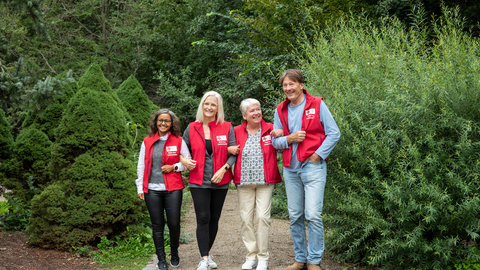Adult education and work experience for asylum seekers
Adult education and work experience for asylum seekers

All centres offer both adult education and a job centre which assists with activation and work experience placements. All new asylum seekers aged 18 or above are called in for an interview in the job centre at the relevant asylum centre. Here, they are asked about their education, work experience, and competences.
In our experience, the more active and meaningful everyday life is for an asylum seeker, the better their chances are of retaining a professional identity and a perspective of the future. It paves the way for a better and easier integration for those asylum seekers who will stay in Denmark. For those who have to leave the country, it helps strengthen human relations and preserve professional competences. These are all factors which are important for building up a new life in another location. Red Cross employees therefore work hard to create an active everyday life, through a combination of language classes, activation and work experience.
Courses at adult education schools for asylum seekers
At Red Cross adult education schools, teachers give lessons in languages, Social Studies, Danish, English, and CV Writing.
Red Cross co-operates with schools and employers, so that asylum seekers have the option of being taught at schools in the area or receiving work experience with local employers. This is an obvious opportunity to build a network of Danish colleagues and learn Danish in a focused and efficient way.
The combination of an external work experience placement and goal-oriented Danish provides better chances for financial independence. This is a huge advantage, both for asylum seekers and everyone else.
Asylum seekers’ tasks in the asylum centres develop their competences
In the centres where asylum seekers live, residents have to take care of all practical tasks themselves, such as shopping, cooking and cleaning. This is part of a normal everyday life. Maintenance of the accommodation and the shared facilities can also form part of a qualifying course. Some asylum seekers have learned to paint, for example, by shining up the residence centre with new colours, in collaboration with local painting businesses. In this way they gain a new competence, and they also often earn a great deal of recognition from the other residents who appreciate their efforts.